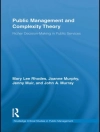The citizen, a figure capable of self-government is both the political and the personal sense, is a central and enduring theme of political thought. The role of the citizen in the modern state was question raised persistently by French political theorists from Rousseau on, as they sought new principles of legitimacy to replace those of the ancient regime. Richard Vernon’s studies in this volume examine a series of moments in French political thought when the possibility and meaning of citizenship were called into question.Vernon considers the view held by Rousseau and later Durkheim that citizenship was sustained immediately by moral principles, a view that was criticized by others who refused any such identification of political and moral order. Vernon shows how this refusal governs, in different ways, the political thinking of theorists as diverse as Maistre, Proudhon, Tocqueville, Comte, Sorel, and Bergson. He explains why the idea of citizenship in its political sense was exposed to so many objections, objections that may in turn suggest a new approach to the topic of political legitimacy.Citizenship may once have been legitimated by ideas of moral, religious or cosmic order, but in a modern context it is the civic process itself that must exercise a legitimating function. Once, citizenship rested upon order; now, suggests Vernon, we may have to realize that order depends upon citizen.
Richard Vernon
Citizenship and Order [PDF ebook]
Studies in French Political Thought
Citizenship and Order [PDF ebook]
Studies in French Political Thought
购买此电子书可免费获赠一本!
语言 英语 ● 格式 PDF ● 网页 272 ● ISBN 9781487573836 ● 出版者 University of Toronto Press, Scholarly Publishing Division ● 发布时间 1986 ● 下载 3 时 ● 货币 EUR ● ID 6961542 ● 复制保护 Adobe DRM
需要具备DRM功能的电子书阅读器












